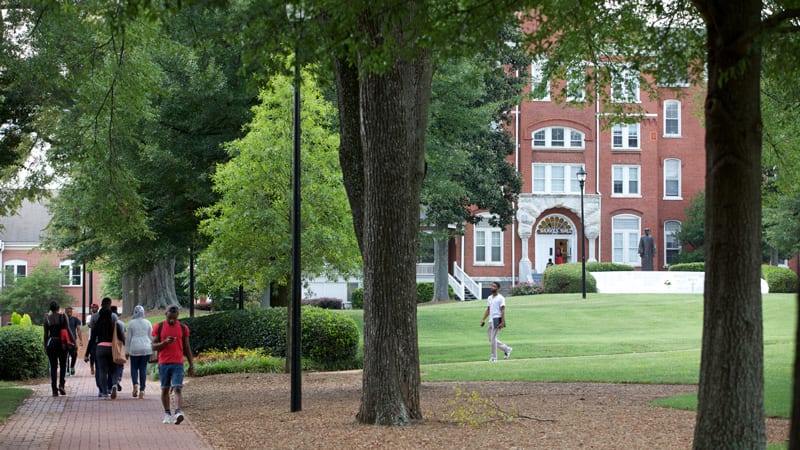Despite Enormous Public Support, Senate Stalemates Bill Providing $255M Annually for MSIs, $85M to HBCUs

UNCF outraged and vows to continue campaign for HBCU funding
UNCF once again expresses its highest level of disappointment in Senate objections to the bipartisan, bicameral Fostering Undergraduate Talent by Unlocking Resources for Education (FUTURE) Act, which extends for two years funding to support Historically Black Colleges and Universities (HBCUs), Tribal Colleges and Universities (TCUs), and Minority-Serving Institutions (MSIs) like Hispanic-Serving Institutions (HSIs), Predominantly Black Institutions (PBIs), Asian/Pacific Islander institutions and others. Collectively, the bill provides $255 in mandatory funding for the institutions—with $85 million going specifically to HBCUs—to enhance outcomes for in-demand careers. That funding expires on Sept. 30, 2019. Today, Sen. Lamar Alexander (TN), chairman of the Senate education committee, once again objected to the passage of the FUTURE Act, seeing it as a vehicle for additional proposals.
“Getting this funding for HBCUs, and the students that they serve, who want to go into demanding STEM careers is so important that I thought no one would stand in the way,” said Michael L. Lomax, president and CEO of UNCF. “After House passage on September 17 by voice, I thought Senate passage would be easy since the FUTURE Act utilizes a funding offset proposed in President Trump’s FY 2020 budget. On behalf of our UNCF membership, and indeed all HBCUs, I encourage the Senate to not let this mandatory funding lapse as you go on a two-week recess. If the Senate will pass this important, bipartisan, and urgent FUTURE Act, I pledge to work with Chairman Alexander, Ranking Member Murray, and anybody else willing in Congress to achieve a Higher Education Act reauthorization with broad chamber and beyond the beltway support.”
“HBCUs need the FUTURE Act to pass today, and our institutions and students do not need a delay or a two-week recess,” said Lodriguez Murray, UNCF’s senior vice president for public policy and government affairs. “This funding cliff crisis will be a challenge, but for over a century our institutions have met challenges head-on, and we are survivors. It is in that same spirit that UNCF began our #ProtectingOurFUTURE campaign, and in this one month alone, through that mechanism have sent 54,500 emails and over 1,800 phone calls to Congress on this one bill. There is substantial public support for the FUTURE Act, and we just hope that Senators respond to that. This funding is important to HBCUs, but it touches every single state in the country! We are disappointed in this outcome today, but we will continue pressing forward until this bill is passed and HBCUs get the critical funding they need for their students’ futures.”
“In the states where HBCUs are located, HBCUs are 9% of four-year colleges and universities, enroll 24% of all African Americans seeking a 4-year degree, but because of the very funding in jeopardy today, HBCUs now graduate 32% of all African Americans with STEM degrees. This is a perfect example of how vital this funding is and we need the Senate to pass the FUTURE Act now,” Murray concluded.
###
About UNCF
UNCF (United Negro College Fund) is the nation’s largest and most effective minority education organization. To serve youth, the community and the nation, UNCF supports students’ education and development through scholarships and other programs, strengthens its 37 member colleges and universities, and advocates for the importance of minority education and college readiness. UNCF institutions and other historically black colleges and universities are highly effective, awarding nearly 20 percent of African American baccalaureate degrees. Today, UNCF supports more than 60,000 students at more than 1,100 colleges and universities across the country. Its logo features the UNCF torch of leadership in education and its widely recognized motto, “A mind is a terrible thing to waste.”® Learn more at UNCF.org, or for continuous updates and news, follow UNCF on Twitter at @UNCF.